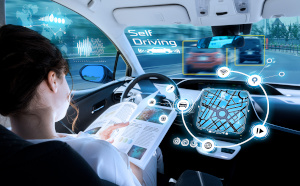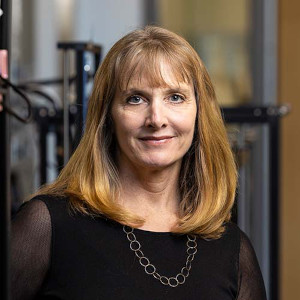IEEE SSIT Chapter Meeting - Self-Driving Cars: The Good, the Bad & the Ugly

Self-driving cars have been a dream from almost the time the automobile was invented. With the rise of artificial intelligence (AI), this dream has seemingly become reality with driverless commercial operations already taking place in a handful of cities around the world. However, the recent tragic accident involving a pedestrian and a Cruise self-driving car, as well as a number of high-profile Tesla crashes, raise the possibility that such systems may not actually be as capable as envisioned, and questions have arisen about their safety both nationally and internationally. Given these concerns, it is important to step back and analyze both the actual safety records of these vehicles and just why AI is struggling to operate safely under all conditions in autonomous vehicles. This talk will highlight the strengths and weaknesses of AI in self-driving cars, as well as in all safety-critical applications, and lay out a roadmap for safe integration of these technologies on public roadways.
Date and Time
Location
Hosts
Registration
-
 Add Event to Calendar
Add Event to Calendar
Loading virtual attendance info...
- 101 Maple Ave E
- Vienna, Virginia
- United States
- Building: Patrick Henry Library
- Contact Event Hosts
- Co-sponsored by LM20049
Speakers
 Missy Cummings
Missy Cummings
Self-Driving Cars: The Good, the Bad & the Ugly
Self-driving cars have been a dream from almost the time the automobile was invented. With the rise of artificial intelligence (AI), this dream has seemingly become reality with driverless commercial operations already taking place in a handful of cities around the world. However, the recent tragic accident involving a pedestrian and a Cruise self-driving car, as well as a number of high-profile Tesla crashes, raise the possibility that such systems may not actually be as capable as envisioned, and questions have arisen about their safety both nationally and internationally. Given these concerns, it is important to step back and analyze both the actual safety records of these vehicles and just why AI is struggling to operate safely under all conditions in autonomous vehicles. This talk will highlight the strengths and weaknesses of AI in self-driving cars, as well as in all safety-critical applications, and lay out a roadmap for safe integration of these technologies on public roadways.
Biography:
Mary (Missy) Cummings is Professor of Mechanical Engineering; Computer and Electrical Engineering; and Computer Science and Director of the Mason Autonomy and Robotics Center (MARC) at George Mason University. Before joining the GMU faculty, she served as the Senior Safety Advisor to the US National Highway Traffic Safety Administration, and held positions at Duke University and MIT. Prior to her academic career, Missy served as a naval officer and navy fighter pilot, one of the first female fighter pilots in Navy history.
Missy’s research interests focus on the application of artificial intelligence in safety-critical systems, assured autonomy, human-systems engineering, and the ethical and social impacts of technologies.
Among other honors and awards, Missy is a Fellow of the American Institute of Aeronautics and Astronautics (AIAA). She serves on several national and international committees including co-chairing the World Economic Forum’s Global Future Council of Autonomous Mobility, and she is a member of the National Academies Committee for AI for Scientific Discovery.
Missy earned a BS Mathematics at the US Naval Academy, an MS in Space Systems Engineering at the Naval Postgraduate School and a PhD in Systems Engineering at the University of Virginia.

